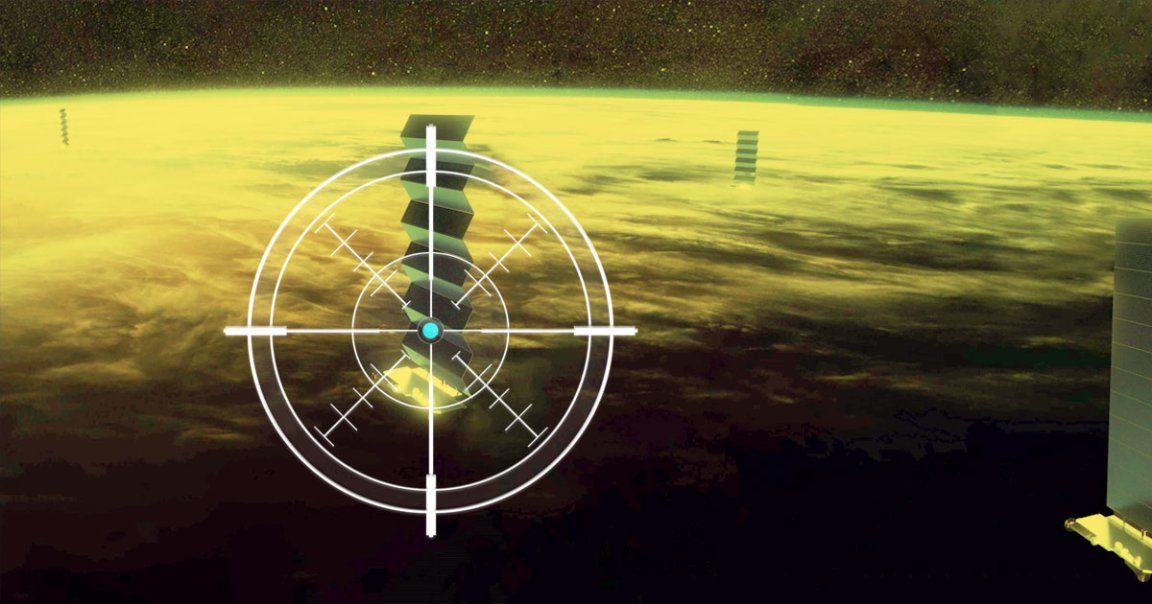
Russia’s delegation at the United Nations General Assembly released an eyebrow-raising statement condemning the United States for allowing private satellites to crowd Earth’s orbit, arguing that they could become a “legitimate target” if they were to ever be used against Russia.
While the statement doesn’t directly name SpaceX’s Starlink satellite constellation by name, it’s almost certainly the target of the statement.
“It’s clear that Starlink has become an important part of Ukraine’s command, control and communication system in parts of the country,” The Economist‘s Shashank Joshi tweeted .
It’s far from the first thinly veiled threat Russia has aimed at its adversaries. In fact, it’s not even the first saber rattling it’s done regarding activity in our planet’s orbit.
However, the hypocrisy of the outburst wasn’t lost on commentators.
“Curiously, this missive omits Russia’s recent use of a missile to destroy an old satellite, showering debris into orbits flown by space stations,” Ars Technica‘s Eric Berger tweeted in response to the statement, referring to Russia’s anti-satellite missile test last year.
And regardless, what Russia is really mad about is almost certainly that SpaceX has been using Starlink to bringing internet to Ukrainians during the ongoing invasion.
Konstantin Vorontsov, a member of the Russian Foreign Ministry and the head of the country’s UN Office for Disarmament Affairs delegation, argued in the statement that the delegation “would like to underline an extremely dangerous trend that goes beyond the harmless use of outer space technologies and has become apparent during the events in Ukraine.”
Vorontsov also accused the US and its allies of using its commercial infrastructure in space “for military purposes,” arguing that “it seems like our colleagues do not realize that such actions in fact constitute indirect involvement in military conflicts.”
Therefore, “quasi-civilian infrastructure may become a legitimate target for retaliation.” And in light of the aforementioned anti-satellite missile test, it might not be an idle threat.
The violent event, which saw one of the country’s own satellites being blown up into countless pieces last November, drew strong condemnation from the international community, with the US Space Command announcing at the time that a resulting “debris cloud” forced astronauts on board the International Space Station to shelter in their escape vehicles.
SpaceX CEO Elon Musk has clearly considered the possibility of Starlink becoming a target, saying earlier this year that “we can launch satellites faster than they can launch anti-satellites missiles.”
It’s a pertinent topic, as Russia’s statement was made just one day after Germany and Japan pledged not to conduct anti-satellite tests, as Space.com points out.
In short, given Russia’s violent actions in both Ukraine and in space, the statement comes off as the kind of aggressive browbeating we’ve come to expect — and it’s unlikely to sway the opinions of other members of the UN.
READ MORE: Russia says private satellites could become ‘legitimate target’ during wartime [Space.com]
More on Russia’s space program: Russia’s New Space Station Gets Sadder the More We Hear About It